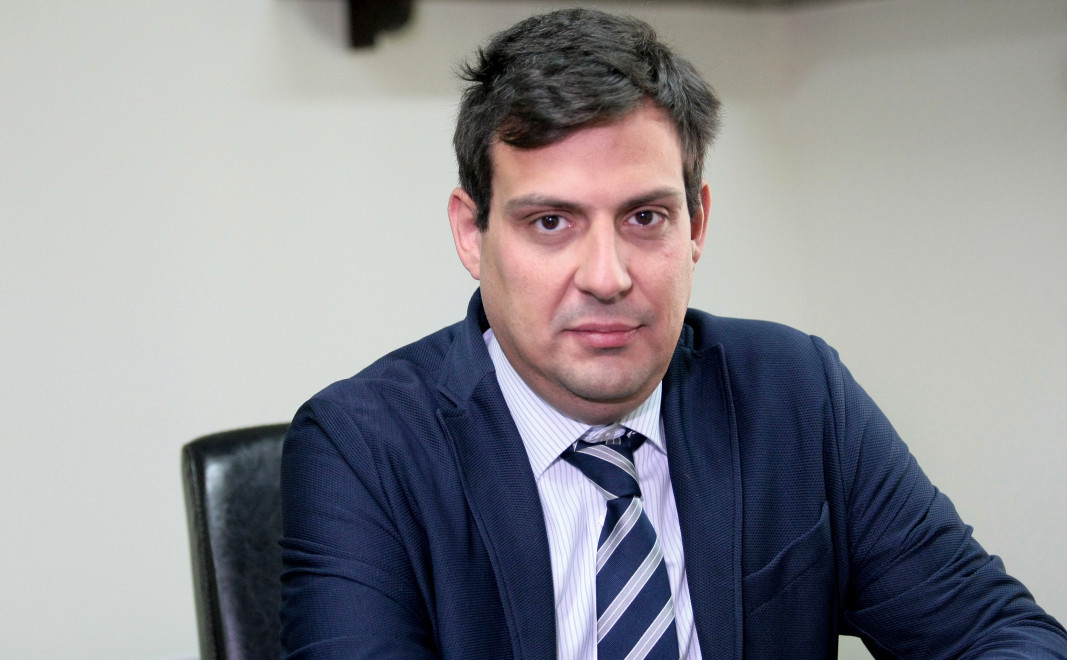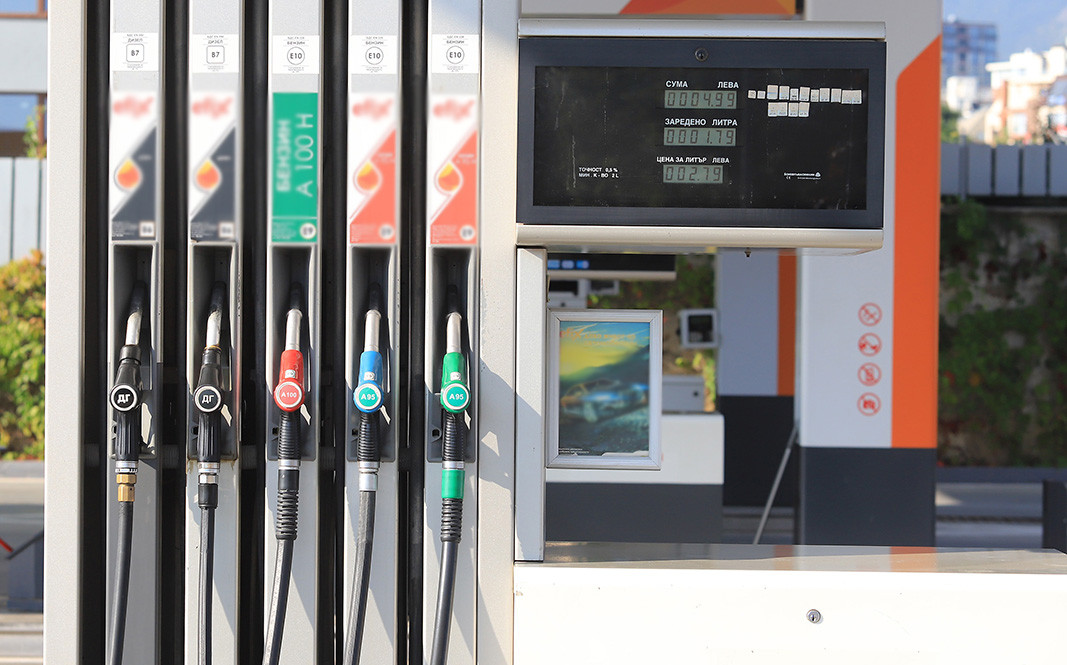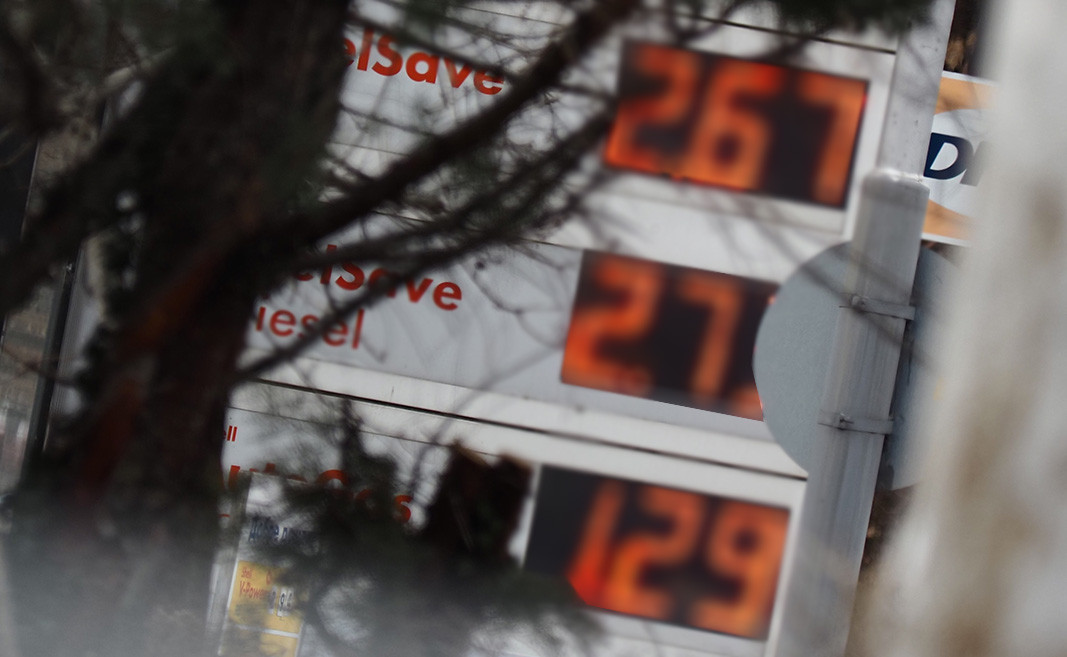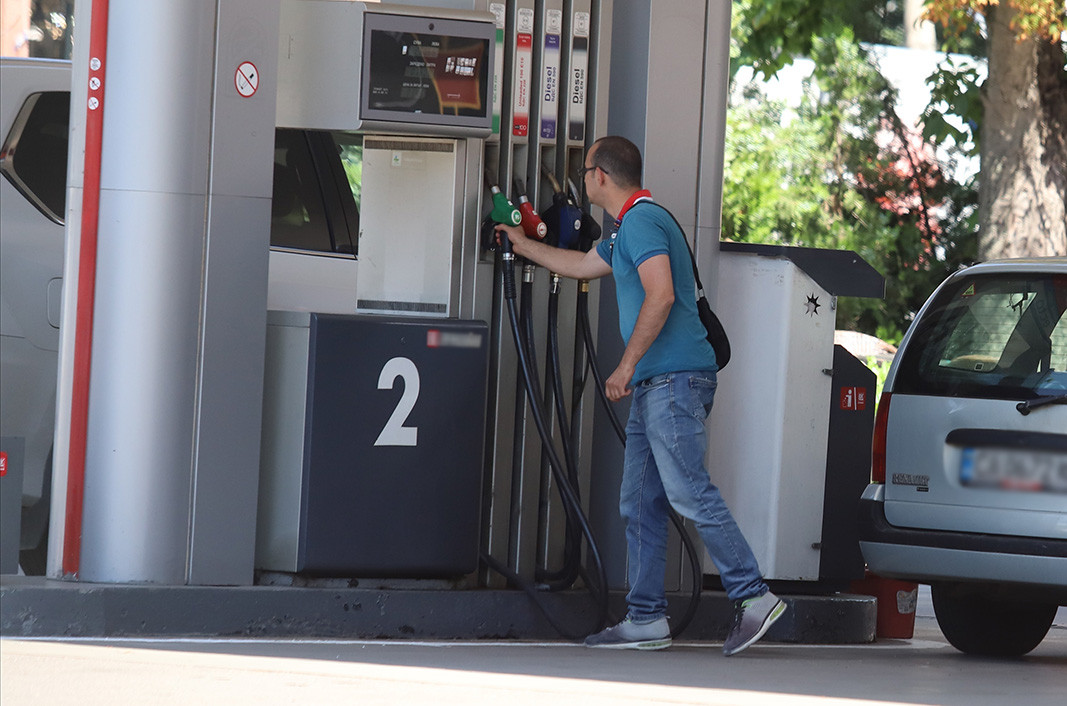Bulgaria is the country with the lowest prices of basic fuels in the EU – petrol and diesel, data show. Yet, as the date of the expected adoption of the single European currency, the Euro, as of 1 January next year draws nearer, people’s fears seem to be on the rise, most of all the fear that the prices of essential goods and services will go up. And this includes fuels, the backbone of the economy, as even the slightest rise in the price of petrol or diesel pushes transport prices up, which, on its part, affects the price of any given product we buy at the store.
The Euro and the pump price and is there any connection between the two? This is the question we put to Svetoslav Benchev, chairman of the Bulgarian Petroleum and Gas Association:  “When the Euro is adopted as the official currency nothing is going to happen,” Svetsolav Benchev says. “Fuel prices depend entirely on what is happening on the international markets. That is something we saw these past few days. That is the only factor that is going to affect prices at the pump, the Euro has nothing to do with it at all.”
“When the Euro is adopted as the official currency nothing is going to happen,” Svetsolav Benchev says. “Fuel prices depend entirely on what is happening on the international markets. That is something we saw these past few days. That is the only factor that is going to affect prices at the pump, the Euro has nothing to do with it at all.”
However, with the adoption of the euro certain difficulties will emerge, though they will be purely technical in nature, he says:  “We are probably going to encounter certain difficulties at first, until we have explained to customers where the two prices – in Leva and in Euro – will be on display, when payment will be in Euro and in Leva. But these are things all businesses will encounter and they will be resolved on the fly. But I don’t expect there to be any particular difficulties. They are purely practical issues – until cashiers learn to work with both currencies, until the clients find where the double prices are displayed – because it’s not going to be on the large sign of the petrol station or at the pump as that is not technically feasible. The prices will be shown either at the pump in some way, or on information signs inside the petrol stations, or in the window,” Svetoslav Benchev says.
“We are probably going to encounter certain difficulties at first, until we have explained to customers where the two prices – in Leva and in Euro – will be on display, when payment will be in Euro and in Leva. But these are things all businesses will encounter and they will be resolved on the fly. But I don’t expect there to be any particular difficulties. They are purely practical issues – until cashiers learn to work with both currencies, until the clients find where the double prices are displayed – because it’s not going to be on the large sign of the petrol station or at the pump as that is not technically feasible. The prices will be shown either at the pump in some way, or on information signs inside the petrol stations, or in the window,” Svetoslav Benchev says. Until 31 January, 2025, prices at petrol stations will be in Leva, and as of 1 January, 2026, when the country is expected to join the Eurozone – in Euro.
Until 31 January, 2025, prices at petrol stations will be in Leva, and as of 1 January, 2026, when the country is expected to join the Eurozone – in Euro.
However, critics of Bulgaria’s entry into the Eurozone are adamant – in the beginning there will be serious inflationary pressure. Is such possible inflationary pressure going to be a factor on the fuels market as well – this is the question we put to economist Georgi Vuldjev from the Expert Club for Economics and Politics, EKIP: “Very likely what we shall see on the fuel market is a certain amount of rounding up of prices as is normal in all other sectors as well. When there is a currency change, companies tend to transfer the currency conversion costs over to the customers. There is a purely psychological angle as well of rounding prices up to a level that is regarded as attractive – usually prices ending in 9 – and that is something we can see with fuels too.”
“Very likely what we shall see on the fuel market is a certain amount of rounding up of prices as is normal in all other sectors as well. When there is a currency change, companies tend to transfer the currency conversion costs over to the customers. There is a purely psychological angle as well of rounding prices up to a level that is regarded as attractive – usually prices ending in 9 – and that is something we can see with fuels too.” The fact that Bulgaria is the EU country with the lowest fuel prices is understandable, Georgi Vuldjev says, for the simple reason we are the country with the lowest incomes in the European family:
The fact that Bulgaria is the EU country with the lowest fuel prices is understandable, Georgi Vuldjev says, for the simple reason we are the country with the lowest incomes in the European family:
“There are prices in Bulgaria that are not lower than the prices in the EU, and actually that is the strange thing, not that fuel prices are lowest. The strange thing is that we have groceries with prices higher than in the other EU countries. And that is an issue that has to be analyzed and addressed in some way,” Georgi Vuldjev says.
Groceries and services - their prices will, most likely, go up after 1 January, he adds.
Translated and posted by Milena Daynova
Photos: BGNES, BNR
Generation Z students (born 1995–2012) are widely using artificial intelligence in their learning, with teachers reporting that more than 85% complete homework and study with the help of digital assistants. Children tend to see AI as a partner..
This year, Christmas has "arrived" in Sofia as early as November with the aroma of mulled wine, cinnamon and festive magic. Radio Bulgaria recommends that you visit some Christmas spots in the Bulgarian capital city: For those most impatient to..
Three-time world champion and Olympic weightlifter Carlos Nasar will be holding a special event with the Bulgarian community in London on 23 November. According to the organisers, it will be an open conversation in which Nasar will discuss his journey..
The first museum of investment gold is welcoming visitors in Plovdiv who want to learn more about the history of money and its connection to gold – from..
On 16 November, we celebrate Caritas Day, when we honour the Catholic Church’s charity organisation that brings hope to those in need through care and..
This year, Christmas has "arrived" in Sofia as early as November with the aroma of mulled wine, cinnamon and festive magic. Radio Bulgaria recommends that..

+359 2 9336 661
